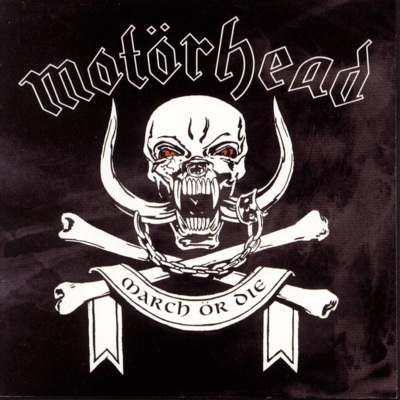
March or Die
by Ed RivadaviaThis is where everything almost went horribly wrong. Encouraged by a new distribution deal through Epic Records and his recent collaboration with old friend Ozzy Osbourne on his wildly successful No More Tears album, Motörhead's Lemmy set out to pursue commercial success like never before and, as a result, almost managed to toss their impeccable legacy in the dumpster. Sure, Motörhead (arguably the most important underground band in rock history) had flirted with accessibility before, but with 1992's March or Die, the English legends shed much of their unbridled power and skull-crushing distortion in order to break down the radio barrier once and for all. Needless to say, it didn't work in attracting new fans, and lukewarm material like "Hellraiser" (in a different version than on No More Tears), the piano- and acoustic guitar-laced "I Ain't No Nice Guy" (a duet with the Ozzman featuring Slash), and a straightforward cover of Ted Nugent's "Cat Scratch Fever" (it just sounds wrong -- maybe if they'd tripled the beat or something) had longtime fans gritting their teeth in frustration. Elsewhere, tracks like "Stand," "Bad Religion," and "Too Good to Be True" found Lemmy making a serious effort to transform his trademark croak into actual singing, and only a few numbers ("Name in Vain," the title track) bear any vague resemblance to the Motörhead of old. At the end of the day, simply attacking the band's motives may seem rather harsh (and is certainly subject to opinion), but there is no denying that March or Die ranks among Motörhead's least-celebrated offerings; nor can one ignore Lemmy's swift about-face toward more extreme fare on 1993's excellent Bastards.

